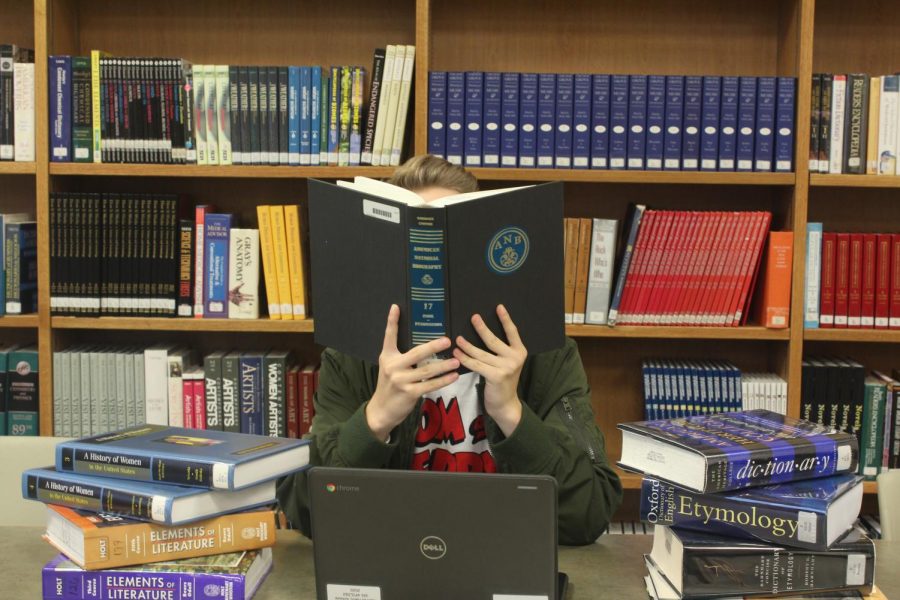Gifted students for dummies
accelerated students pursue advanced education
More stories from Natalie Kuhn
A gifted student is often perceived by their peers as peculiar or an overachiever, but according Newton Public Schools Gifted Services powerpoint; Best Practices, “a gifted student is one who posses a form of higher thinking from early on in their education and displays a desire for complex learning”.
Gifted students are not easily identifiable by physical appearance, and often are mistaken with behavioral complications and learning disabilities. If their higher intelligence is not noticed in early education, they may become uninterested in classes and intolerant of less advanced students. According to The Conversation.com, when advanced intellect is noticed in early elementary school, the best outcome for the student comes from the action of being placed in settings where others possess similar ability. Families work hand in hand with the school in way to customize an Individualized Education Program (IEP) that adapts with the student as they progress through school.
Upon entering the high school, the strategy changes; high school offers honors and advanced placement (AP) classes for students seeking an elevated learning environment. Transitioning between the eighth and ninth grade proves to be a struggle as scheduling conflicts often arise between Chisholm middle school and the high school.
“They should put a little more effort into making sure that the schedules are worked together properly and that everyone knows what’s going on because I remember there was times last year… they would hardly tell us anything, we would know maybe the day before what we were actually doing the next day”, freshman Clayton Kaufman said.
Kaufman joined the gifted program in the second grade and was transported from Chisholm to the high school his eighth grade year to take German, Honors Geometry, and Honors Biology.
Kaufman felt that his experience at Sedgwick wasn’t beneficial for his education, his time in Newton so far has shown that gifted programs are not equally developed school by school; some have gifted programs that involve different course types based on student interest, while some have career opportunities tied into the program.
“Up until fourth grade I was in Sedgwick schools gifted program. There it was borderline non-existent so once I got to fifth grade, when I started coming to Newton, that it was a real program,” Kaufman said.
High school gifted programs are different than early education, students are scattered between many classes that differ from student to student, they still attend weekly/monthly meetings with gifted advisor Shari Sloan.
In addition to general school work, students are also required to turn in projects assigned to the gifted program, which sophomore Elise Jantz believes should be even more specialized.
“I think those [assignments] would be really nice if I got two choose them. It could be really interesting to me but with having what, five honor classes plus sports and music, I don’t have time to do stuff like that even if I would want to.” Jantz said.
Gifted programs give advanced students an opportunity to use and develop their higher intelligence. Being gifted does not alienate students, it enriches potential and opens opportunities.
“Your brain is kind of weird compared to everybody else. So it makes sense that it would be weird and both beneficial and not beneficial ways,” said Jantz.

